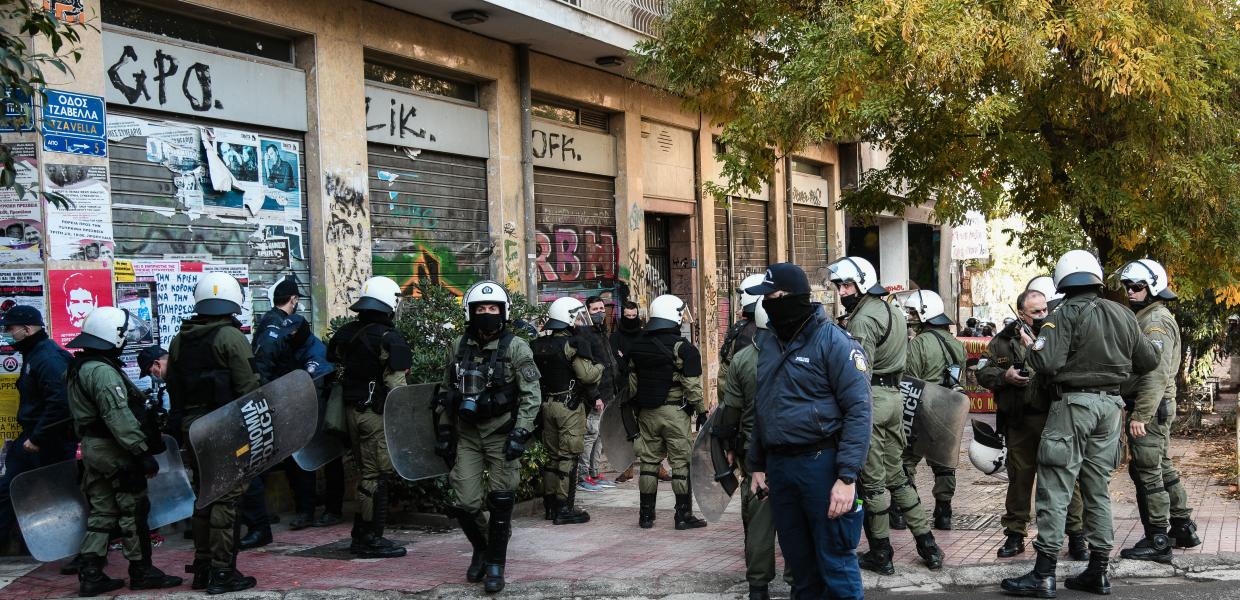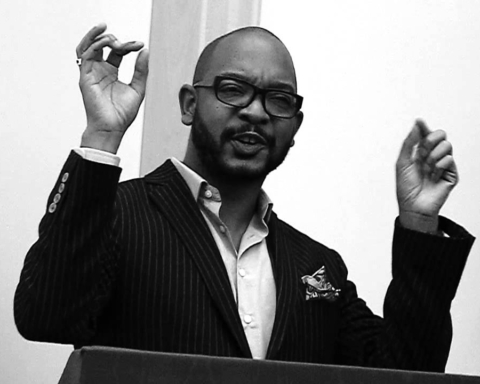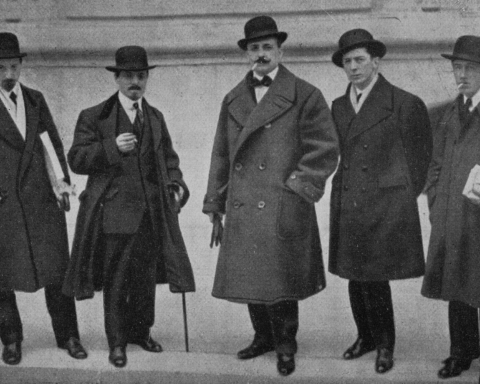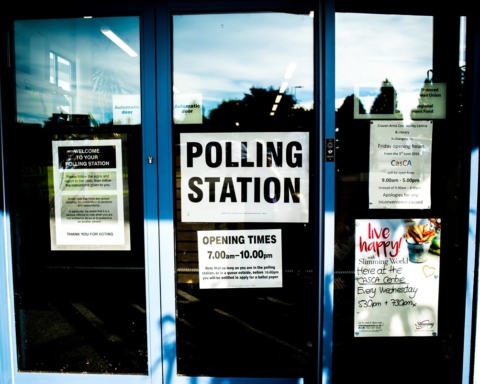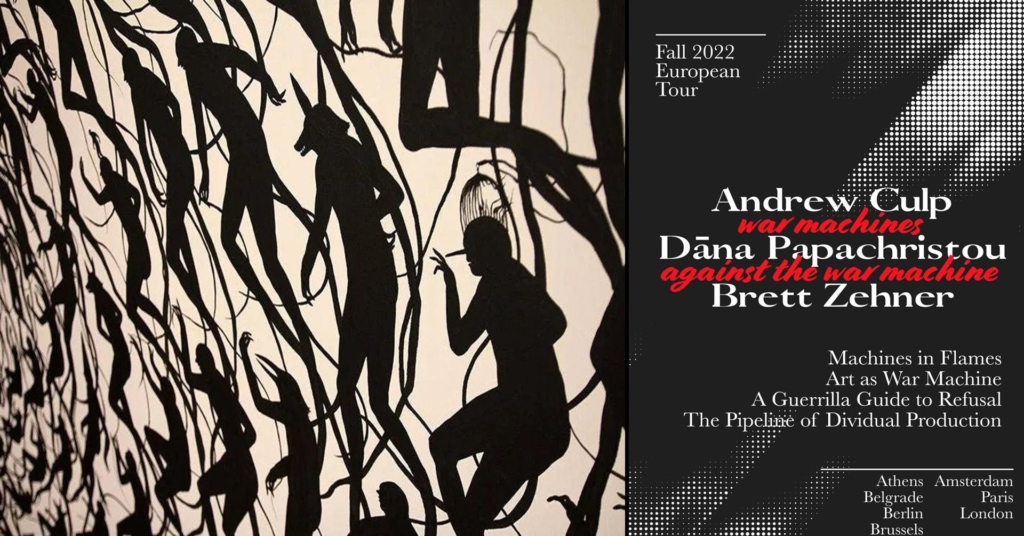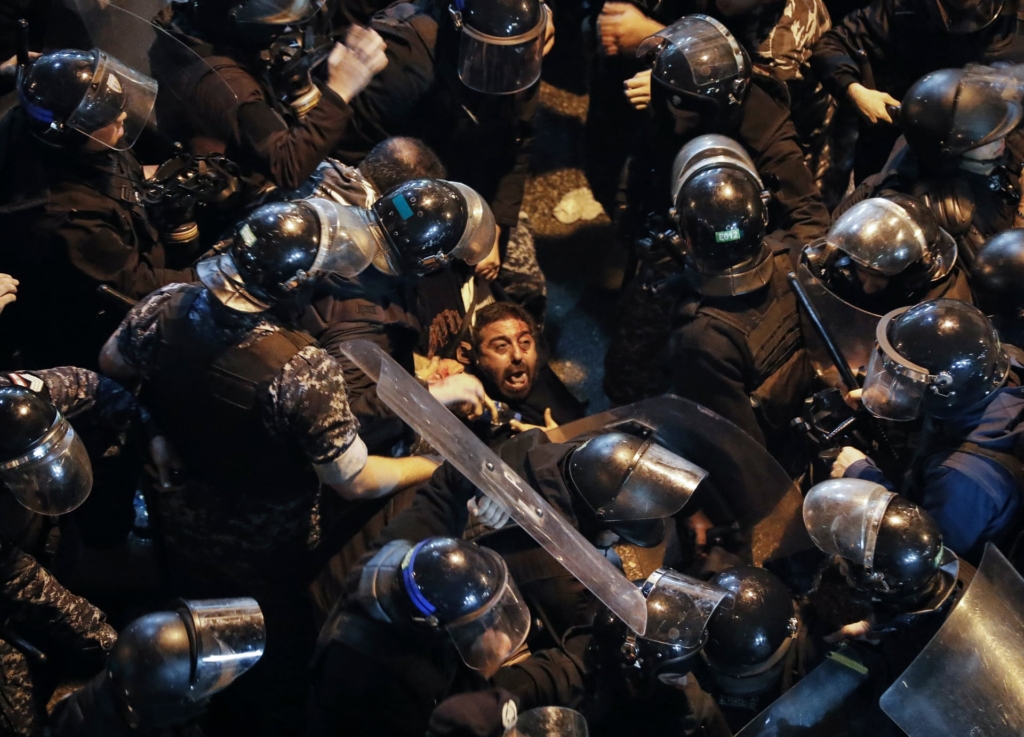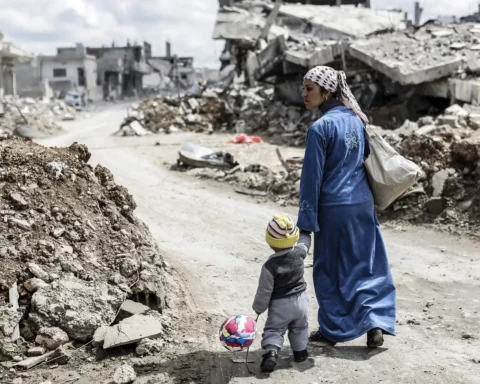Note: The text that follows is an excerpt of an interview with Kelly Hayes that is featured in the anthology of antifascist writing No Pasarán! (AK Press, October 2022).
“Kops and Klan go hand in hand!” This chant was shouted in street gatherings across the country during the 2020 uprising against white supremacy and police violence. The historic connection of white nationalist vigilante violence and the police became glaringly obvious in the disparity between the treatment of the Proud Boys and that of antiracist protesters, where police often refused to intervene while the far-right gangs leveled attacks on left-wing demonstrators.
Antifascism is built on the notion that these insurrectionary fascist groups, such as the alt-right or the Proud Boys, are extraordinary and distinct from the larger liberal order, yet it’s not that simple. Instead, the role of the police as an institution of social control in racial capitalism and settler-colonialism has always had some relationship to the insurgent white supremacist groups that are looking to reinstitute racial hierarchies. This apparently symbiotic relationship forces antifascists to reckon with the similarities and differences between white nationalist groups and the police as they build strategies to deal with both.
I interviewed abolitionist organizer Kelly Hayes — who is the host of Truthout’s podcast “Movement Memos” and a contributing writer at Truthout — about her experiences confronting these interlocking systems of oppression, how she became an organizer, how she approaches this relationship between antagonistic forces, and how we can build up an abolitionist antifascism that goes further than only defeating fringe neo-Nazi groups.
Written by Shane Burley, AK Press
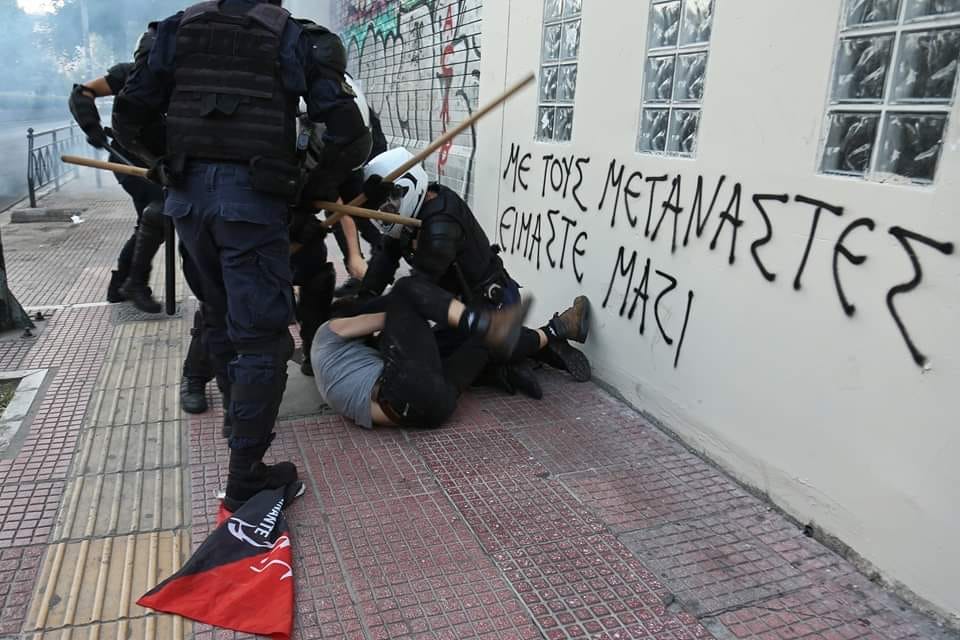
Shane Burley: How does police abolition work connect to antifascism?
Kelly Hayes: Police, who are themselves fascistic, are the entry point to incarceration. There’s nothing more fascistic in the US than our prison system. If fascism escalates, it already has a mass disposal system for human beings and a populace that has been conditioned to ignore what happens in those places. We already know that people suffer and die horribly in those places, and we know people allow it. People participate in mythologies about the purpose and function of it all. These facilities manufacture conditions that bring about premature death and they extract time, as Ruth Wilson Gilmore has explained. The prison-industrial complex and its many tentacles are the beast the fascists would feed us to.
It’s important to remember that fighting fascism means fighting the erosion of human empathy. It means fighting the further normalization of mass suffering and death. That makes the prison-industrial complex ground zero.
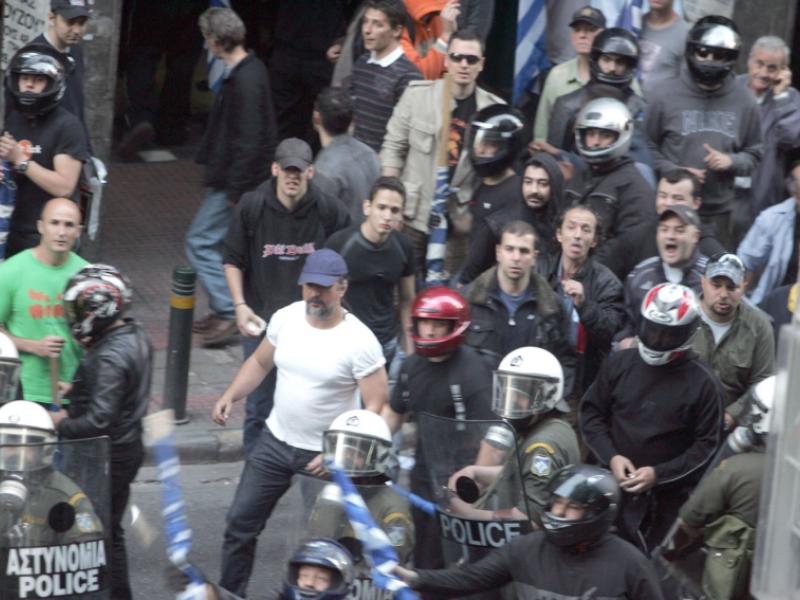
What role does the police have in the growth of the far right?
The police are a natural home for right-wing militants and it’s important not to think of far right forces and police as distinct. The membership overlap between police and white supremacist organizations is quite telling.
But I think people also sort of limit themselves sometimes in how they perceive that overlap. Most racist people don’t join racist organizations. We need to understand the police as a white supremacist organization that has formalized power. It’s entrenched in the government, and maintains state interests, and has a whole mythology of “upholding decency” around it. Policing, as an idea, appeals to a lot of people who aren’t down with the [Ku Klux] Klan. Since police can be well paid in an economy that generally screws over Black and Brown communities, we see a lot of nonwhite cops, and that demographic diversity helps legitimize police violence.
People have a narrow image of what white supremacy and the far-right looks like because we are conditioned to see state violence as inherently legitimate. Police don’t just have legal immunity, for the most part, they also have social immunity, and their actions are not scrutinized in the ways that everyday people are. If they were, people would have no trouble recognizing, based on simple inventories of events, that the police are a force for white supremacy.
A lot of vigilante violence that helped impose order under Jim Crow became institutionalized as the police became more professionalized, and more heavily armed. Lynchings where no one was charged gave way to shootings and beatings and other violence that was dealt out from a place of police legitimacy.
It’s not surprising to see collaboration between police and right-wing vigilantes because they’re natural allies and grown out of the same cultural formation. We rarely see them clash, and, when they do, they often do it with kid gloves. You cannot effectively pit these forces against one another because they are too entwined and have too many shared values and purposes.
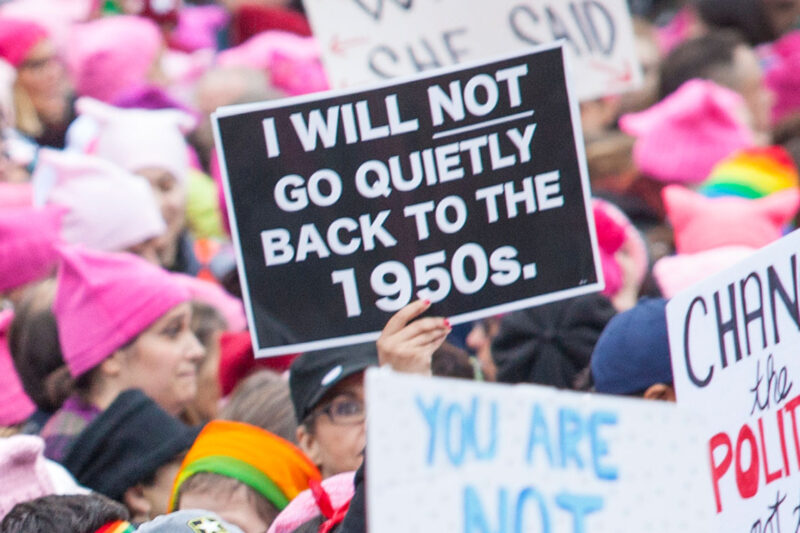
We saw these two forces, the police and the far right, even more explicitly collapse into each other over the past few years. How do you think we can build social movements capable of taking on both forces simultaneously?
We have to understand that there is no alternative to taking on both the police and the far right simultaneously. The police are the most powerful right-wing gang in the country.
When strategizing against them, it must be understood that they are in collaboration with other white supremacist organizations. When countering white supremacist organizations, it must be understood that police are either actively entrenched in those organizations, or could come to their aid at any time, because they’re on the same side.
_________
source: https://truthout.org/articles/we-must-unlearn-the-lie-that-state-violence-is-inherently-legitimate/
_________
